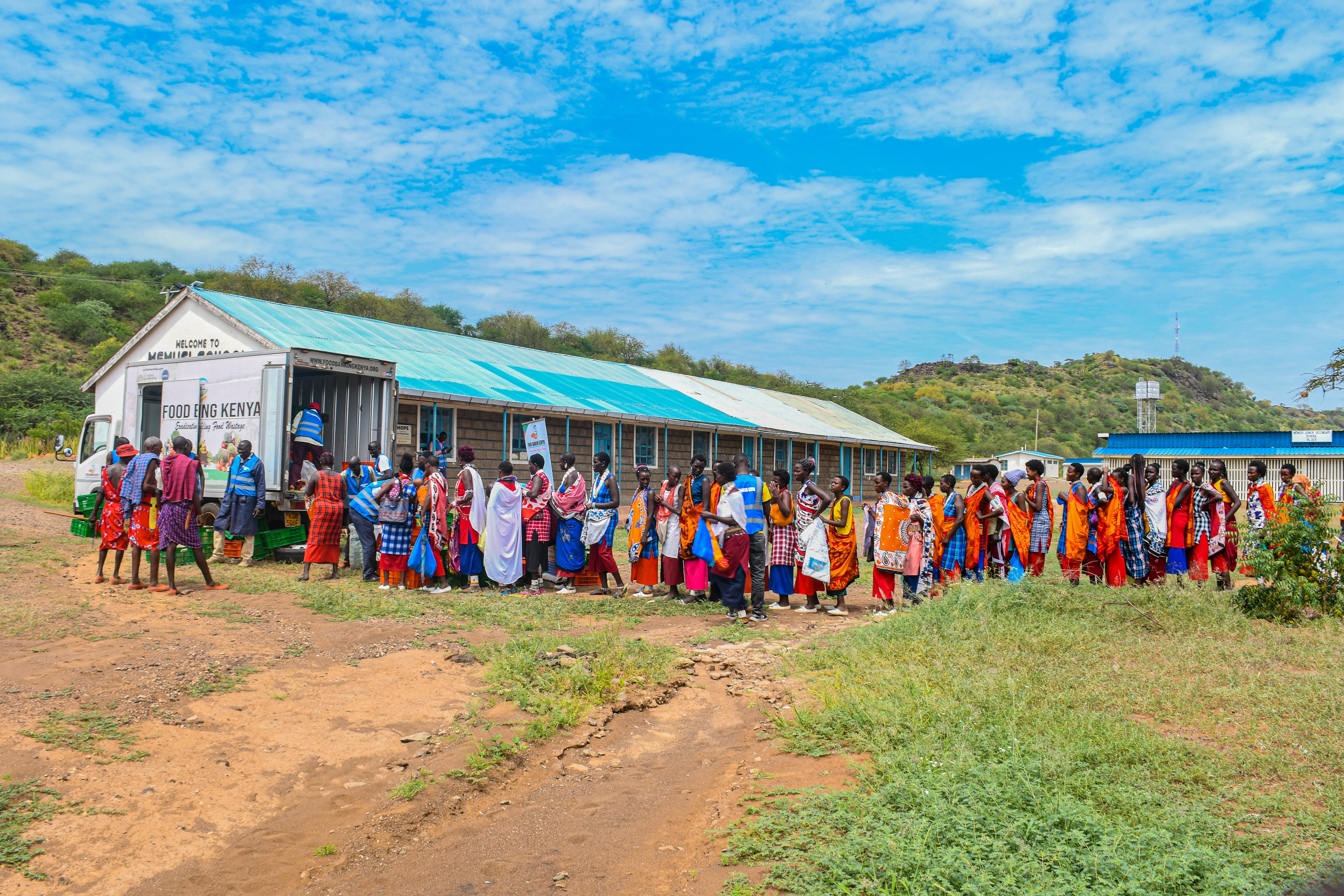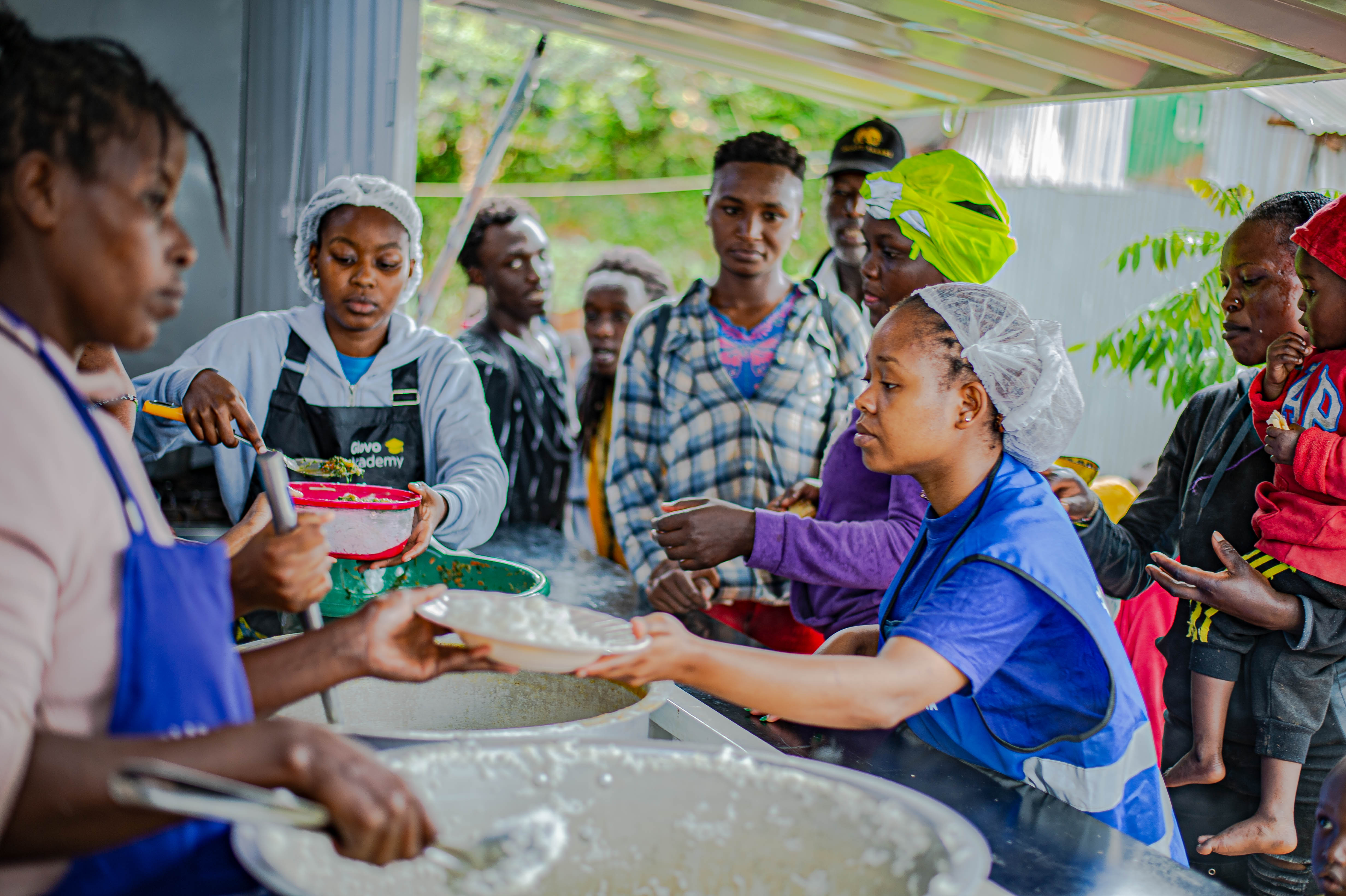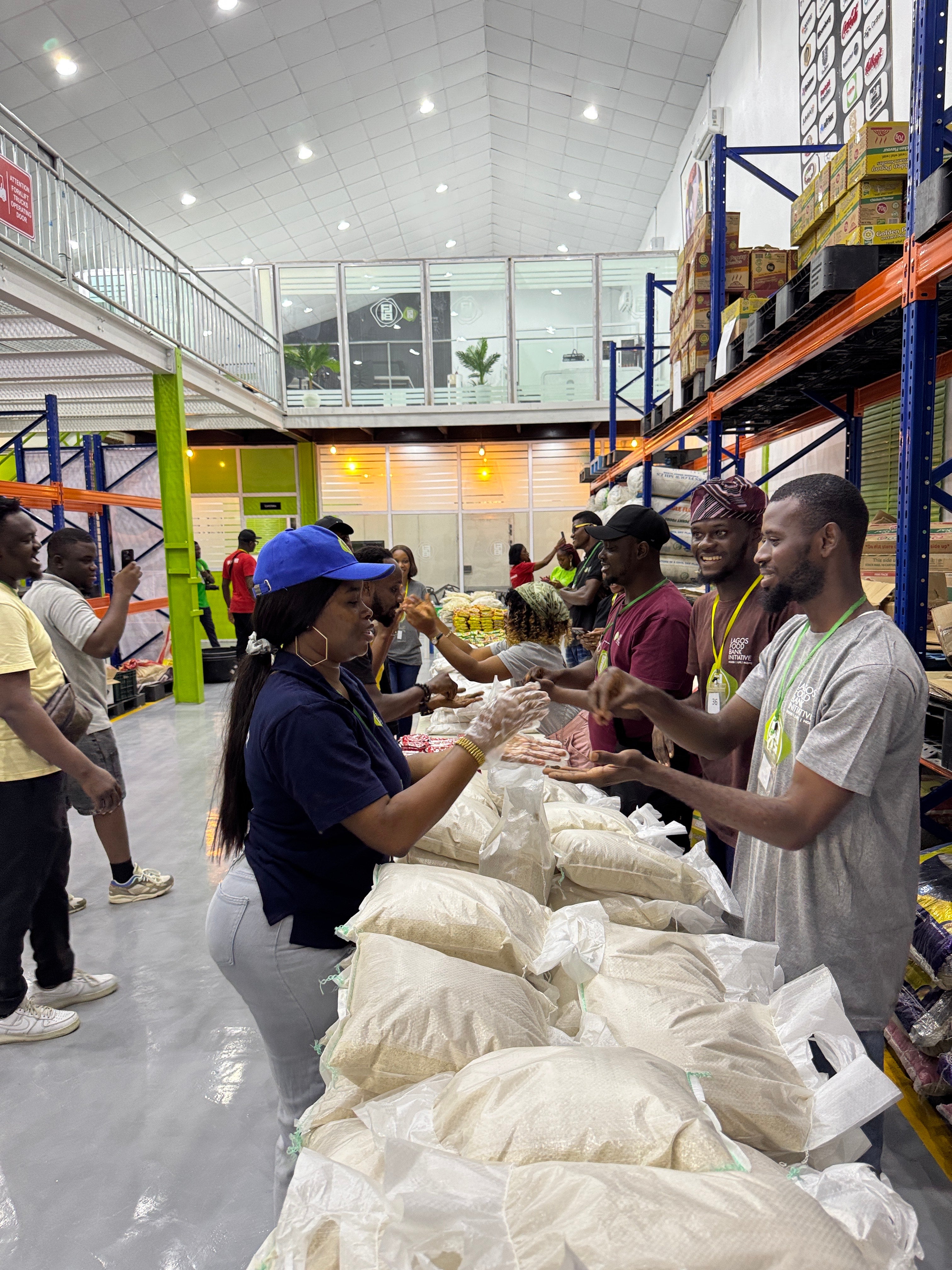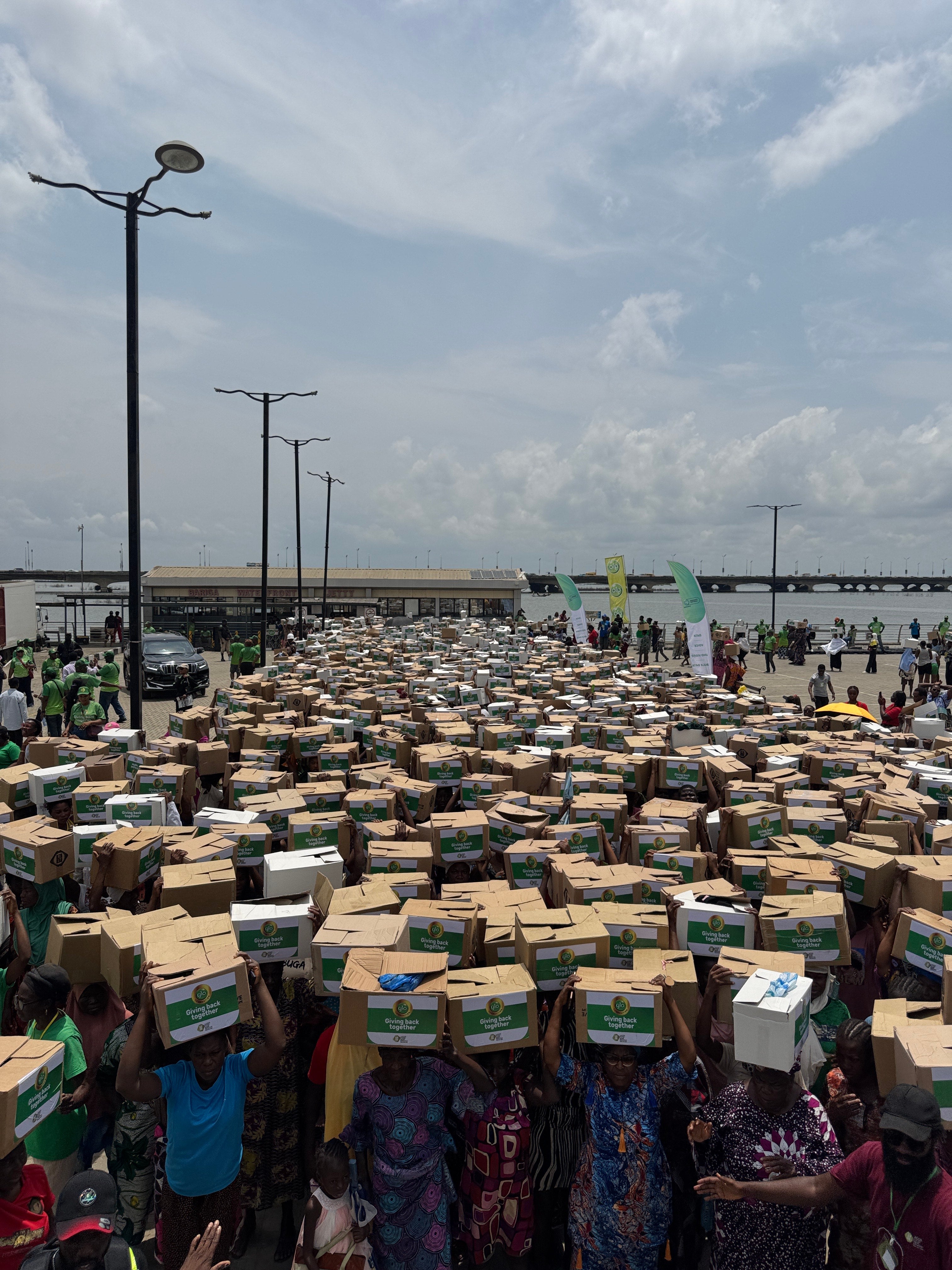Food banks across Africa have told The Independent that cuts to foreign aid – primarily those by Donald Trump in the US, but including the UK – are helping to significantly drive up the number of people needing their help, therefore reducing the amount of supplies they can hand out.
Food Forward South Africa said that demand for its food services has soared since the start of the year and is expected to increase further still as grants from USAID run out in the coming months, while Food Banking Kenya has revealed that demand is up 300 per cent this year, far outstripping what they are able to provide. In Nigeria, the Lagos Food Bank is another that is expecting shortages thanks to US aid cuts.
“The numbers we are seeing this year are absolutely huge. We thought numbers were big in other years, but this is completely unimaginable,” says John Gathungu, CEO of Food Banking Kenya. “We are doing all we can to restrain people and discourage them from collecting food from us.”
Food Banking Kenya also partners with the Kenyan Red Cross, another organisation impacted by aid cuts, which runs health and ambulance services around the country. The food bank is working to help with food deliveries that the Red Cross is unable to completely support – but is nonetheless struggling to meet demand, which has led to tragic consequences.
“There was one story where the Red Cross called our offices to say that there is a family in a certain area – a woman with three children – who were in a desperate situation after being unable to eat for three days,” says Gathungu. “By the time our delivery driver arrived, it was already too late – the woman had actually committed suicide… which was incredibly distressing for us.”
Kenya, South Africa, and Nigeria all took massive hits when USAID terminated more than 80 per cent of its contracts in May, worth an estimated $260m (£191m), $224m, and $178m, respectively.
But it is not just decisions from Washington that are hitting government budgets in sub-Saharan Africa: next year is set to mark the third consecutive year of decline in G7 aid spending, according to Oxfam, with the US (down $33bn), the UK (down $5bn), Germany (down $3.5bn) and France (down $3bn) all significantly cutting overseas aid year-on-year.
Kenya, South Africa, and Nigeria have all seen their public services and social security provision deteriorate as a result, with HIV services in South Africa and food aid in Nigeria particularly devastated.

‘Surprised how many organisations relied on aid’
Kenya is a major agricultural economy that exports food all around the globe – but also faces major food insecurity challenges, with 46 per cent of people living on less than $3 a day, according to the World Bank.
Food insecurity struggles have been significantly heightened this year by aid cuts, according to Gathungu, whose food bank last year provided more than 20 million meals across the country’s five major cities, with food largely sourced from farm surpluses.
Food Banking Kenya’s office is now also receiving a constant flow of emails and phone calls from organisations looking to partner with them, and when delivery trucks go to deliver food parcels to families, they now deliver with a specific list of recipients due to the situation being unmanageable otherwise, Gathungu explains.
It is not only from direct recipients of food aid that the food bank is seeing an impact. A number of charitable partners have been severely impacted by the cuts, and the food bank is doing what it can to fill the gap. “I have been surprised just how many partners and projects relied on USAID for funding,” says Gathungu.
For example, the Food Bank was due to partner with a company called Nature Lock to deliver school meals to 200 schools in informal settlements. Despite the fact that all the paperwork had already been signed, the stop-work order from USAID led to the entire deal being put on pause – until Food Banking Kenya moved to fill the gap with its own food and logistics operation. “We could not just say to the 20,000 children who were going to receive food, that that simply was not going to happen any more,” says Gathungu.

‘Worse to come’
Elsewhere on the continent, Food Forward South Africa distributed 25 million tonnes of food last year, making it the largest food banking organisation in Africa by some margin. The charity – which is sourced from farms, manufacturers, and supermarkets – is based in Cape Town, but reaches hundreds of thousands of people in small, rural communities through programmes that include direct food assistance, nutrition services for mothers and babies, school breakfasts, and community kitchens for vulnerable groups.
According to Food Forward’s managing director, Andy Du Plessis, the charity has already seen an increase in demand this year –to the point where they have had to put a pause on all applications for new distribution partners. “We normally get around 100 and 250 applications a month, but are currently getting 350 to 400 applications,” he says.
In the coming months, Du Plessis believes that demand is set to increase by a further 10 to 20 per cent as USAID grants and redundancy payments begin to “fizzle out”, and more people begin to require their services. “The cuts are phased out by September, and unemployment insurance is also running out, so we anticipate that over the next year, we will see a big increase in demand,” he says.
Core drivers of demand, Du Plessis continues, include middle-class individuals who have lost USAID-funded jobs and require financial support, as well as people suffering from chronic illnesses like HIV who are no longer able to work, or services that provide support for those with chronic illnesses, who can no longer provide the food themselves.
Even before the impact of aid cuts, some 55 per cent of South Africa’s population lived below the poverty line, and around a quarter of households were severely food insecure – despite the fact that South Africa is a major food exporter, and produces more than enough food for its people to eat.

The country’s difficulties are set to increase yet further as a result of new tariffs from the Trump administration worth 30 per cent – a tax that puts up to 100,000 jobs at risk, according to authorities.
In Nigeria, the Lagos Food Bank has been operating for 10 years now to bring food to communities in a country where millions are suffering from long-term food insecurity. Last year, a team of 30,000 volunteers was able to feed some 3 million people by directing excess food from supermarkets and farms – but according to Michael Sunbola, executive director at the food bank, this was just a “drop in the ocean”.
Having suffered a significant funding hit due to Trump slashing USAID programmes, the organisation says that the aid cuts will only worsen a pattern that it is already seeing play out, thanks to the country’s chronic food insecurity and inflation.
Food inflation in Nigeria currently stands at more than 30 per cent, as a result of weak harvests and low food stocks in the country. “The last year has seen the cost of living soar and people’s disposable income plummet, pushing the middle classes into poverty and fueling demand for the food bank,” says Sunbola.
“We thought there was high demand during Covid – but what we are seeing right now is five times that,” says Sunbola.

Aid cuts will, however, impact the ability of such food banks to stay open, with international donor organisations also losing their own funding through USAID or other aid cuts.
Earlier this year, two international partners pulled out from supporting the food bank, says Sunbola – but so far the food bank has largely been able to fill the gap by working with new corporate partners.
Climate’s compounding effect
Climate change is also a key driver of Nigeria’s food insecurity crisis, driving less regular rainfall patterns and prolonged dry seasons, says Sunbola. “Agricultural yields, particularly in the northern regions of Nigeria, are being seriously impacted,” Sunbola adds.
“Weak yields then have a major impact on food prices here in Lagos.”
Meanwhile, South Africa is “being hit by more and more extreme weather events like droughts and flooding – and when these happen, we are often first responders on the scene with food supplies,” says Du Plessis.
In fact, all three programmes also report how climate change is only increasing pressures on food systems.
In Kenya, meanwhile, climate impacts have at times been so severe over the last few years that, at times, farmers themselves have had to be supplied with food support.
“Rains have become weaker, and much less predictable. Farmers’ crops are failing and hunger is striking rural communities,” says Gathungu.
“In 2023, there were issues of having no rain, while in 2024 there was too much rain and farms became flooded. Both years, we have had to supply food to smallholder farmers who, in previous years, supplied food to us.”
This article is part of The Independent’s Rethinking Global Aid project
If you are experiencing feelings of distress, or are struggling to cope, you can speak to the Samaritans, in confidence, on 116 123 (UK and ROI), email [email protected], or visit the Samaritans website to find details of your nearest branch.
If you are based in the USA, and you or someone you know needs mental health assistance right now, call the National Suicide Prevention Helpline on 1-800-273-TALK (8255). This is a free, confidential crisis hotline that is available to everyone 24 hours a day, seven days a week.
If you are in another country, you can go to www.befrienders.org to find a helpline near you.

.jpg?width=1200&height=800&crop=1200:800)

